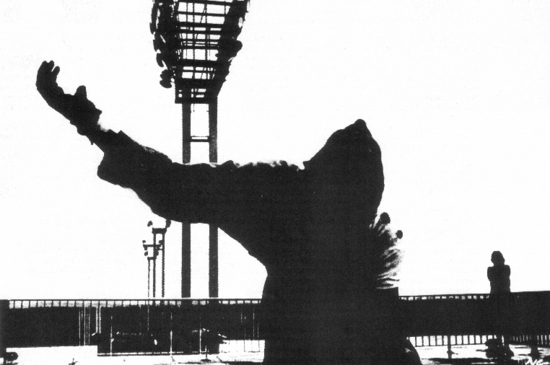February 24, 2006
Optimism of the act
There's a thoughtful response to my last couple of posts over at What in the Hell, which gives me the opportunity to nuance my position a little.
First of all, I want to point out that my pessimism was not a consequence of watching A Grin without a Cat. The bleakness the post registered arose from the contrast between what the film shows and my recent experiences at work. It was the extent to which the film was inspiring that threw the current difficulties of organizing or even envisaging any way out of the airtight bureaucratic cage of the 'third way' into such miserable relief: even the failures of the 60s and the 70s belonged to an atmosphere of heightened expectations that seems to totally out of kilter with today's pinched horizons.
And yet... This pessimism is more emotional than intellectual. Intellectually speaking, there are enormous reasons for optimism, since, as I have repeatedly stressed, Capitalist Realism is not 'really' realistic. There are any number of reasons - economic, environmental, not to mention political - why capitalism in its current mode is not sustainable. Capitalist Realism is best understood not as a projection of 'what can really happen' but as a constellation producing certain (negative) affects and cognitions.
But a genuine event is one which breaks with what is thinkable and possible. The unimaginable is what happens. History, as Foucault observed in 'Nietzsche, Geneaology, History', proceeds via sudden cuts and unpredictable lurches rather than by smooth progressions, an observation which is borne out by the rise of Capitalist Realism itself. You only have to think back to a year like 1975, when neo-liberalism couldn't have looked less 'realistic'.
But, needless to say, neo-liberalism didn't arise from nowhere. It was the result of systematic and deliberated thinking about how to break labour and re-assert capital. We must learn lessons from how it made the Impossible happen. The slogan should be 'pessimism of the emotions, optimism of the act'.
A parallel with clinical depression may be instructive here. In particularly acute cases of depression, it is recognized that no verbal or therapeutic intervention will reach the patient. The only effective remedy is to do things, even though the patient will, at that time, believe that any act is pointless and meaningless. But 'going through the motions' of the act is an essential pre-requisite to the growth of belief 'in the heart'. Much as Pascal famously argued in his Wager, belief follows from behaviour rather than the reverse. Similarly, the only way out of cultural depression like now is to act as if things can be different.
There are a few more things that I want to say - about capitalism and the new, and about the relationship of the above to what is happening at work at the moment - but I'll have to leave that for another post.
Posted by mark at February 24, 2006 11:34 AM | TrackBack